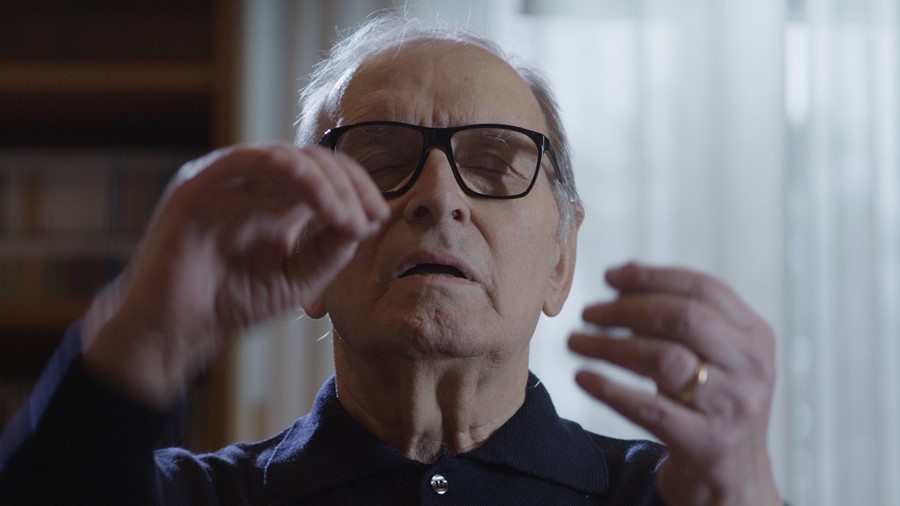Giuseppe Tornatore’s new documentary delves into the legacy of the late Italian musical icon, who scored over 500 films during his lifetime
Can a film composer be considered among the GOATs of classical tradition? In 2020, John Zorn made just such an argument, comparing the first five notes of the ‘coyote call’ from Ennio Morricone’s score for The Good, the Bad and the Ugly to the notes – der-der-der-durrr! – that open Beethoven’s fifth symphony. It’s a daring thought that underlines a central theme of Ennio, Giuseppe Tornatore’s documentary on the Italian music icon known simply as “maestro”.
Morricone died in 2020 at the age of 91, leaving behind a peerless legacy of scores for more than 500 films. His music will forever be synonymous with the twanging, mock-operatic cues he composed for the spaghetti westerns of Sergio Leone. But that barely does justice to a canon which runs the gamut from rich baroque pop to musique concrète and cinematic pairings with the likes Pier Paolo Pasolini, Terrence Malick and Bernardo Bertolucci. For an idea of his playful genius, look no further than the opening crawl to Pasolini’s The Hawks and the Sparrows, transformed into an absurdist song in which Morricone lists all the credits to the film. Or the song Se Telefonando, a smash-hit for Italian pop star Mina and influenced by the avant-garde techniques of serialism.
Tornatore worked with Morricone on a run of films beginning with Cinema Paradiso (1988), and spent five years researching this two-and-a-half-hour opus, which boasts long reminisces from Morricone as well as a seemingly endless procession of admirers and collaborators. What emerges is a portrait of a man whose genius lay in his ability to embrace the spirit of his age, whatever doubts he may have harboured.
Morricone grew up in working-class Trastevere, Rome, the son of a trumpet player father and a mum who worked as a textile manufacturer. He initially wanted to be a doctor, but his dad insisted he take up music and sent him to the Saint Cecilia Conservatory, where he was regarded disdainfully by his upper-crust classmates. Later, his dad’s declining health forced him to play trumpet on the local theatre circuit to put food on the family table, a “terrible humiliation” for the young aspiring composer. (In one of the film’s most touching moments, Morricone says he avoided writing parts for the trumpet in his early soundtracks, to spare his father’s feelings about not being asked to perform on them.)
At Saint Cecilia he came under the tutelage of Goffredo Petrassi, a renowned composer in the neoclassical style who Morricone admired greatly. Petrassi recognised Morricone’s talent, but professed a haughty disregard for film music that led the young composer to record many of his earliest efforts under a pseudonym, Don Savio. But Morricone, who had been drawn to the work of John Cage during his studies, learned to embrace this “time of confusion” for contemporary music, and overcome his feelings of shame about his métier. In a sense, his career embodies the 20th century’s great tussle between high and low culture, a fact that’s reflected in the bewildering array of talking heads assembled here; Metallica’s James Hetfield and The Boss rubbing shoulders with Hans Zimmer and composer and philosopher Boris Porena. “At first I thought that music applied to film was humiliating,” says Morricone at one point in the documentary. “Now I think it’s fully fledged contemporary music.”
Ennio is on at UK cinemas now.
